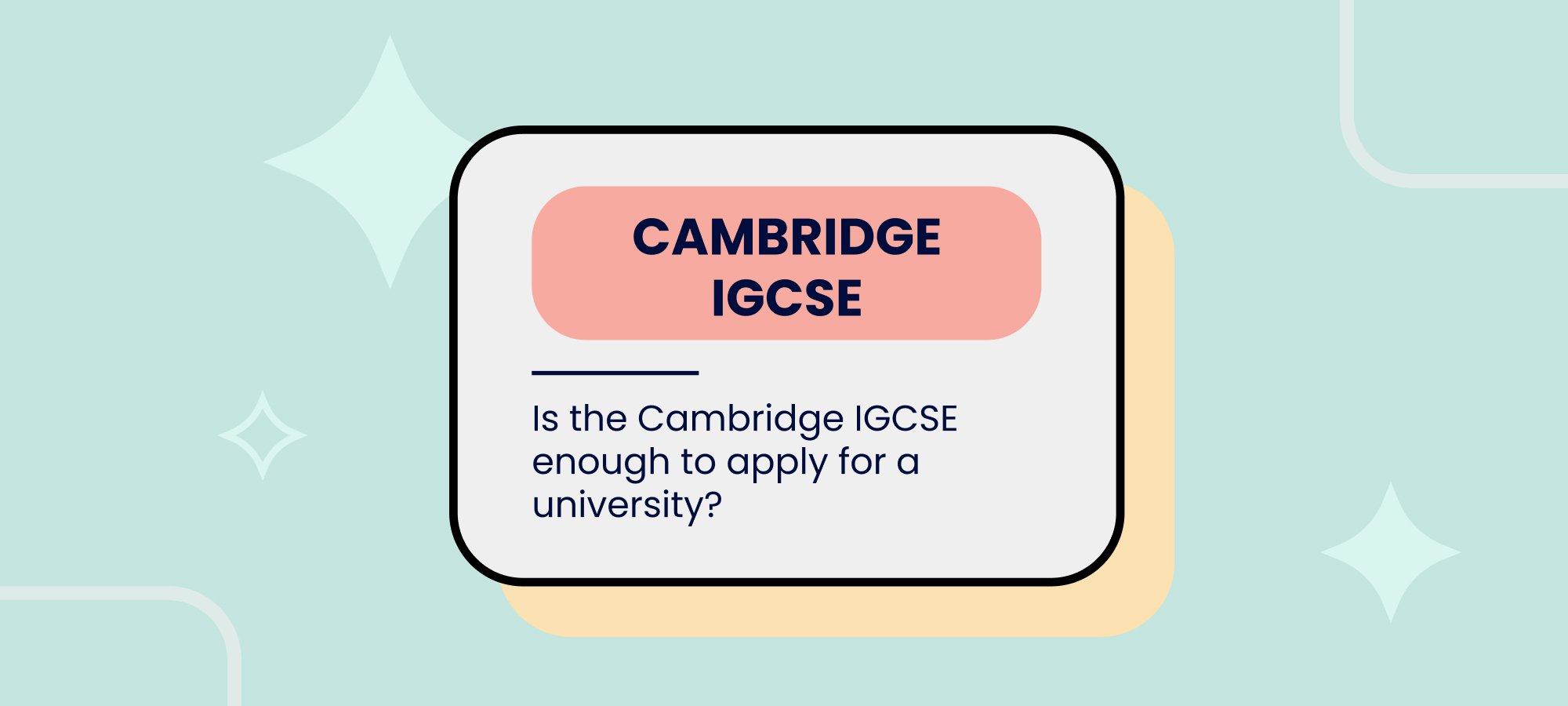Is the IGCSE Enough to Apply for a University? Understanding the Pathway to Higher Education
Introduction
The Cambridge International General Certificate of Secondary Education (IGCSE) is a globally recognized qualification for students aged 14 to 16 years old. It is designed to offer a broad and flexible curriculum that prepares students for further study and career opportunities. However, many students and parents wonder if the IGCSE is sufficient for applying to universities worldwide. In this blog post, we will delve into the IGCSE's role in higher education applications and how it fits into the broader educational landscape.
The IGCSE: A Solid Foundation
The IGCSE is a comprehensive program that focuses on developing critical thinking, problem-solving, and practical skills across various subjects. It provides a strong foundation for students, ensuring they have a solid grounding in core subjects like English, Mathematics, and Sciences. The IGCSE also offers a wide range of elective subjects, allowing students to explore their interests and passions. Overall, the IGCSE is an excellent starting point for students looking to build essential skills and knowledge for higher education.
The IGCSE and University Admissions
While the IGCSE provides a solid foundation for students, it is crucial to understand that it is not a standalone qualification for university admissions. Most universities require students to have completed a pre-university program, such as the International Baccalaureate (IB) Diploma, A-Levels, or Advanced Placement (AP) courses. These programs are designed for students aged 16 to 19 years old and offer more in-depth, specialized knowledge in chosen subjects.
The IGCSE serves as a stepping stone towards these pre-university programs, equipping students with the skills and knowledge needed to excel in their chosen advanced courses. Therefore, while the IGCSE may not be enough for direct entry into university, it is a crucial component in preparing students for more advanced studies required for university admissions.
Choosing the Right Pre-University Program
After completing the IGCSE, students have several options for pre-university programs. The choice ultimately depends on the student's preferences, learning style, and future educational and career goals. Here are some popular pre-university programs to consider:
- A-Levels: A-Levels, also known as the General Certificate of Education Advanced Level (GCE A-Level), are subject-based qualifications offered in the United Kingdom and other countries. Students typically choose three to four subjects to study in-depth over two years. A-Levels are widely recognized by universities worldwide, and many institutions have specific A-Level requirements for entry into their courses.
- International Baccalaureate (IB) Diploma: The IB Diploma is a comprehensive, globally recognized program that focuses on developing well-rounded students through a broad and balanced curriculum. Students study six subjects, including languages, sciences, humanities, and arts, and participate in a core program consisting of Theory of Knowledge, Extended Essay, and Creativity, Activity, Service (CAS). The IB Diploma is accepted by universities worldwide, and many institutions offer credit or advanced standing based on IB scores.
- Advanced Placement (AP) Courses: AP courses are college-level courses offered in the United States and other countries. Students can choose from various subjects and have the option to take AP exams at the end of the course. High AP exam scores can earn students college credit or advanced placement in university courses, depending on the institution's policies.
Preparing for University Applications
In addition to completing a pre-university program, students should also focus on other aspects of their university application. Here are some tips to help students stand out in the admissions process:
- Develop extracurricular interests: Universities are looking for well-rounded students who demonstrate a passion for learning and personal growth. Engaging in extracurricular activities such as sports, clubs, community service, or internships can help showcase a student's interests and abilities beyond academics.
- Build strong communication skills: Effective communication is essential for success in higher education. Students should work on improving their written and oral communication skills, as these will be invaluable in crafting compelling application essays and performing well in interviews.
- Maintain a high GPA: A strong academic record is an essential component of a successful university application. Students should strive to maintain a high GPA throughout their pre-university program, demonstrating their commitment to academic excellence.
- Cultivate relationships with teachers and mentors: Strong recommendation letters can significantly impact a university application. Students should build positive relationships with their teachers and mentors, as these individuals can provide valuable insights and endorsements.
- Research and visit universities: Students should research universities that align with their educational and career goals. Attending university open days, talking to admissions officers, and visiting campuses can help students gain a better understanding of the institutions they are interested in and make informed decisions about where to apply.
- Prepare for standardized tests: Some universities require standardized test scores, such as the SAT or ACT, as part of their admissions process. Students should dedicate time to preparing for these exams, as high scores can increase their chances of acceptance.
Conclusion
While the Cambridge IGCSE provides a strong foundation for students, it is not enough for direct entry into university. The IGCSE serves as a stepping stone to more advanced pre-university programs, such as A-Levels, the IB Diploma, or AP courses, which are essential for university admissions. By choosing the right pre-university program and focusing on building a well-rounded application, students can increase their chances of success in the competitive university admissions process.

